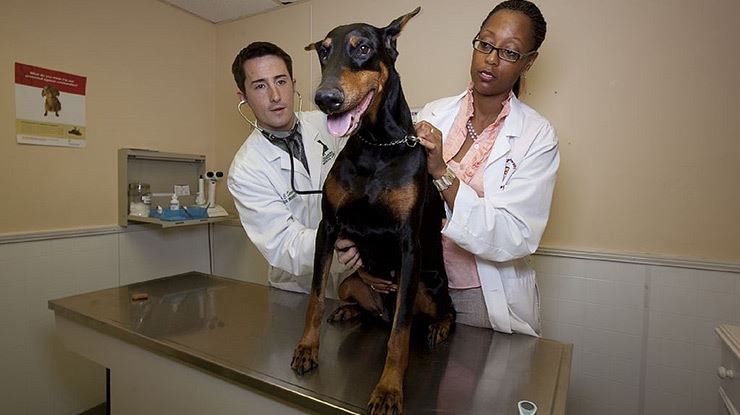
2 Killer Canine Diseases Vaccination Can Prevent
Often our best friends have to suffer in silence, as they are unable to communicate precisely what is hurting or aching in their body. As a dog parent, you want to be taking the best care of your four-legged friend, but it can be challenging when you don't know what is wrong!
You need to be observant and perceptive regarding any potential health problems, as well as their risk factors, so that you can prevent them altogether.
Vaccines work the same for your dog as for yourself. When your dog receives a vaccine, his or her immune system produces antibodies that work against the viruses or bacteria that cause the disease. Therefore, if your pet is later exposed to that disease, these antibodies will help destroy those viruses or bacteria. When in doubt, reach out to your trusted local vet if you have any questions or concerns.
Here are two killer diseases dog vaccination can prevent.
1. Canine parvovirus infection
Vaccination against canine parvovirus infection, or parvo for short, is one of the primary vaccines that all puppies should receive—ensuring that most dogs do not actually get this highly preventable viral disease that attacks the heart and intestines.
The disease is contracted when dogs come into contact with the excrement of a contaminated dog, and the contact can be made either directly or indirectly. For this reason, puppies that are raised in breeding facilities or shelters are most at risk of canine parvovirus infection.
Symptoms of parvo include severe weight loss and diarrhea, vomiting, and lethargy. Unfortunately, the chance of survival is not great, as more than half of the dogs that get parvo end up dying from it.
2. Adenovirus, Type 1 (CAV-1, canine hepatitis)
Hepatitis in dogs is highly contagious and widespread around the world. However, it is uncommon in areas where dogs are routinely vaccinated.
The severity of the disease ranges from mild to fatal cases. Again, there is no specific treatment for infectious canine hepatitis. Treatment is directed at controlling the symptoms until the virus terminates. Unvaccinated dogs and younger dogs are at the highest risk of being infected with the virus that causes infectious canine hepatitis.
For this reason, vaccination is crucial to prevent infectious canine hepatitis. Just like the one for parvo, this is another of the core vaccines that are recommended for all dogs.
It is common for dogs to receive a vaccination against a closely-related virus, canine adenovirus Type 2, which protects against both infectious canine hepatitis (CAV-1) and a respiratory illness caused by CAV-2. The reason that CAV-2 vaccines are more commonly used to protect against both of these viruses is due to the potential for side effects from the CAV-1 vaccine.
Always listen to your vet's recommendations when it comes to the vaccinations necessary and appropriate for your dog to protect them against these three deadly diseases and other common canine illnesses.
While it can seem as though there is a multitude of dangers hiding out there for your dog, by arming yourself with the knowledge of the most common and preventable deadly diseases, you can help keep your furry friend safe.
AUTHOR BIO
Dr. Max Spicer is the Managing Partner and Senior Veterinary Surgeon at The Veterinary Hospital in Dubai. He has taken strides towards providing comprehensive service by hiring veterinarians that are flexible, approachable, and highly specialised in their respective fields.










